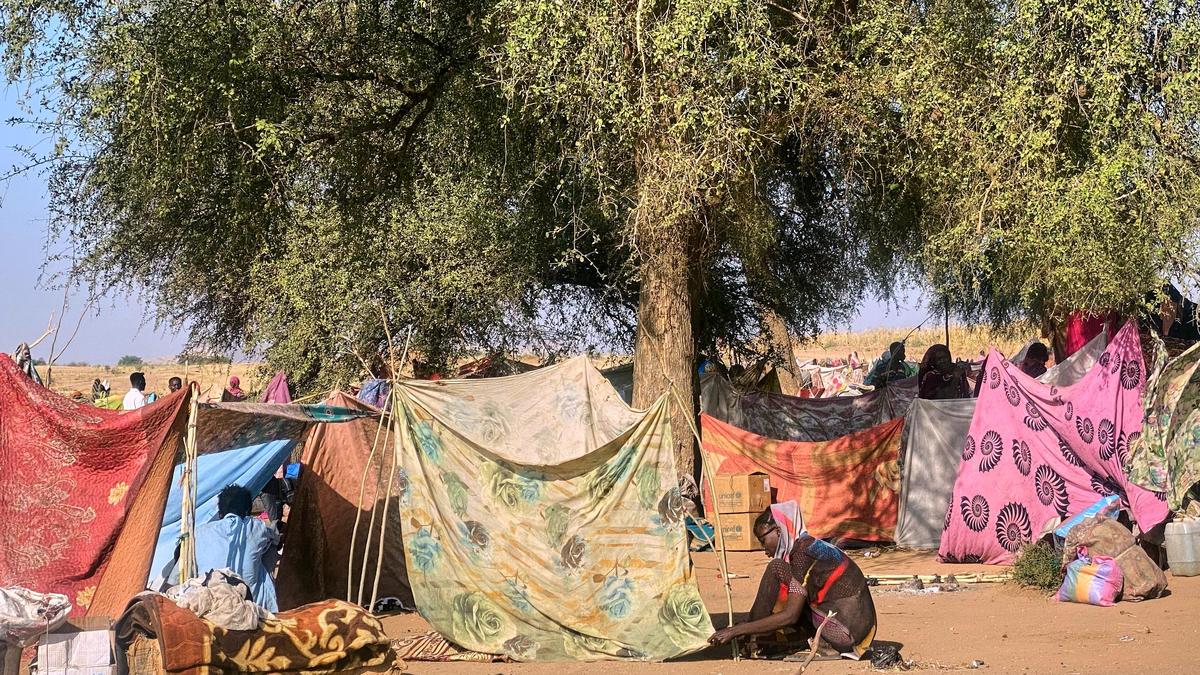Exactly one year after “Comedian” (2019), the cursed banana duct-taped to the wall, went under the hammer at Sotheby’s and down Chinese crypto billionaire Justin Sun’s gullet for a whopping $6.2…
Author: admin
-

Today’s NYT Wordle Hints, Answer and Help for Nov. 3 #1598- CNET
Looking for the most recent Wordle answer? Click here for today’s Wordle hints, as well as our daily answers and hints for The New York Times Mini Crossword, Connections, Connections: Sports Edition and Strands puzzles.
Today’s Wordle puzzle is…
Continue Reading
-

Fears grow for thousands trapped in Sudan’s el-Fasher as few reach safety
Only a few thousand Sudanese have reached the nearest camp for displaced in the days since Sudan’s paramilitary forces seized el-Fasher city, raising fears over tens of thousands who might still be trapped as survivors described killings and…
Continue Reading
-

Cardi B cheers on Stefon Diggs beside Robert Kraft at Gillette Stadium
Cardi B joins Robert Kraft to cheer boyfriend Stefon Diggs at Gillette Stadium as he hits major NFL milestone
Music superstar Cardi B made headlines…
Continue Reading
-

Senegal reports 1st Rift Valley fever cases in the Kédougou Region, the 9th region to report cases
The Ministère de la Santé et de l’Hygiène publique in Senegal is now reporting human Rift Valley fever (RVF) in nine regions. The latest in Kédougou Region in south-eastern Senegal near the border with Mali and Guinea.
Since the outbreak…
Continue Reading
-

Folk musician and BBC presenter Archie Fisher dies aged 86
 BBC
BBCArchie Fisher presented BBC Radio Scotland’s Travelling Folk from 1983 to 2010 Folk musician and former BBC Scotland presenter Archie Fisher has died at the age of 86.
The singer, songwriter and guitarist had presented BBC Radio Scotland’s…
Continue Reading
-

Watch Brandi Carlile Play Songs From New Album on Saturday Night Live
Brandi Carlile was the musical guest on last night’s episode of Saturday Night Live, hosted by Miles Teller. Backed by a full band, Carlile performed two songs from her new album Returning To Myself, “Church & State” and “Human.” During…
Continue Reading
-

Volleyball’s Win Streak Snapped at Five in Four Set Loss to Princeton
PROVIDENCE, R.I. – Brown volleyball (12-7, 7-3 Ivy) had its winning streak snapped at five as the Bears lost to Princeton (12-6, 7-3 Ivy) in four sets on Sunday (Nov. 2), 27-25, 15-25, 25-23, 25-18.Brown was led by a career-high 14 kills by
Continue Reading
-

Kevin Harrington: Celebrating the Achievements of ICR’s New Graduates in Cancer Research
Kevin Harrington/LinkedIn
Kevin Harrington, Professor in Biological Cancer Therapies at the Institute of Cancer Research, shared a post on LinkedIn:
“Earlier this week, I had the…
Continue Reading
-

No. 2-Seed WVU Set to Begin Play at 2025 Big 12 Tournament
FORT WORTH, Texas – The No. 19-ranked West Virginia University women’s soccer team is set to open postseason play in the quarterfinals of the 2025 Big 12 Soccer Tournament presented by Allstate. No. 2-seed WVU will kick off against No. 7-seed…Continue Reading
